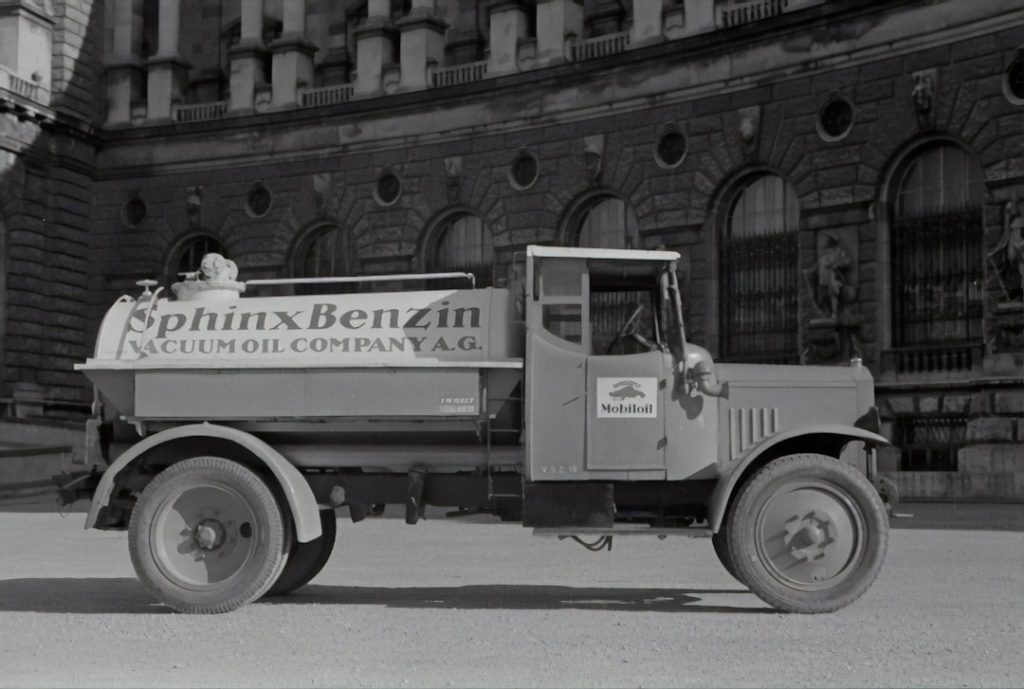Renewable fuel plays a significant role in Kabul’s energy landscape, offering a sustainable alternative to traditional fossil fuels. As Afghanistan’s capital, Kabul faces challenges in meeting its energy needs, and renewable fuel provides a solution to reduce dependence on imported fossil fuels and minimize environmental impact. The use of renewable fuels like biodiesel and ethanol can decrease greenhouse gas emissions, enhance air quality, and improve energy security in Kabul.
Additionally, renewable fuel production can generate economic opportunities and contribute to developing a more sustainable energy infrastructure. The adoption of renewable fuel in Kabul can help diversify the energy mix and reduce Afghanistan’s reliance on volatile global oil markets. Investing in renewable fuel production and distribution can enhance Kabul’s energy resilience and decrease vulnerability to geopolitical and economic uncertainties.
Renewable fuel can also support rural development by providing opportunities for local farmers to produce feedstock for biofuel production, fostering a more inclusive and sustainable energy economy in Afghanistan. The importance of renewable fuel in Kabul is substantial, as it offers a path to a more sustainable, secure, and resilient energy future for both the city and the country.
Key Takeaways
- Renewable fuel is important for Kabul to reduce reliance on traditional fuels and improve air quality
- Challenges in renewable fuel logistics include infrastructure limitations and security concerns
- Efficient transportation strategies include route optimization and use of alternative fuel vehicles
- Technology plays a key role in tracking and monitoring renewable fuel shipments
- Collaboration and partnerships are essential for successful distribution of renewable fuel in Kabul
- Efficient renewable fuel logistics can have positive environmental and social impacts
- Future opportunities for renewable fuel logistics in Kabul include expansion of infrastructure and adoption of new technologies
Challenges in Renewable Fuel Logistics
Infrastructure Limitations
Despite the numerous benefits of renewable fuel, one of the primary challenges associated with its logistics and distribution in Kabul is the lack of infrastructure for renewable fuel production, storage, and transportation. The existing infrastructure in Kabul is primarily designed for traditional fossil fuels, and there is a need for significant investment in building new infrastructure to support the production and distribution of renewable fuel.
Transportation and Storage Challenges
The transportation of renewable fuel from production facilities to end-users can be challenging due to the limited availability of dedicated transportation networks and storage facilities. Another challenge in renewable fuel logistics is the need for specialized handling and storage equipment to ensure the quality and safety of the fuel throughout the supply chain. Renewable fuels have different properties compared to traditional fossil fuels, and they require specific handling procedures to prevent contamination and degradation.
Regulatory Challenges
Furthermore, the lack of standardized regulations and quality control measures for renewable fuel in Kabul can pose challenges in ensuring the consistency and reliability of the fuel supply. These logistical challenges can hinder the widespread adoption of renewable fuel in Kabul and limit its potential to contribute to a more sustainable energy future for the city.
Strategies for Efficient Renewable Fuel Transportation

To address the challenges in renewable fuel logistics, several strategies can be implemented to improve the efficiency of transportation and distribution in Kabul. One strategy is to invest in the development of dedicated infrastructure for renewable fuel production, storage, and transportation. This includes building new biofuel production facilities, establishing storage terminals for renewable fuel, and creating a network of distribution centers to ensure reliable supply chains for renewable fuel across Kabul.
By investing in dedicated infrastructure, the city can overcome logistical barriers and create a more robust and efficient renewable fuel logistics system. Another strategy is to promote the use of alternative transportation modes, such as rail and waterways, for the bulk transportation of renewable fuel. These modes of transportation can offer cost-effective and environmentally friendly solutions for moving large volumes of renewable fuel over long distances.
Additionally, implementing advanced logistics technologies, such as real-time tracking systems and route optimization software, can help improve the efficiency of renewable fuel transportation by reducing transit times and minimizing fuel wastage. By leveraging these strategies, Kabul can enhance the efficiency and reliability of renewable fuel transportation, paving the way for greater adoption of sustainable energy solutions in the city.
The Role of Technology in Renewable Fuel Logistics
| Technology | Impact |
|---|---|
| GPS Tracking | Real-time monitoring of fuel shipments, improving efficiency and security |
| Automated Inventory Management | Reduction of stockouts and overstock, optimizing storage and transportation |
| Renewable Fuel Sensors | Accurate measurement of fuel quality and quantity, ensuring compliance and sustainability |
| Blockchain | Transparent and secure supply chain management, reducing fraud and errors |
Technology plays a critical role in optimizing renewable fuel logistics in Kabul by improving efficiency, safety, and sustainability throughout the supply chain. One key technology that can enhance renewable fuel logistics is the use of advanced tracking and monitoring systems. These systems enable real-time visibility into the movement of renewable fuel shipments, allowing for better inventory management, route optimization, and proactive problem-solving.
By leveraging technologies such as GPS tracking and IoT sensors, logistics operators can ensure the timely delivery of renewable fuel while minimizing the risk of theft or spoilage. Furthermore, data analytics and predictive modeling can help optimize renewable fuel logistics by identifying patterns and trends in supply chain operations. By analyzing historical data and market trends, logistics operators can make informed decisions about inventory management, demand forecasting, and transportation planning.
This can lead to more efficient use of resources, reduced waste, and improved overall performance in renewable fuel logistics. Additionally, the use of automation and robotics in storage and handling facilities can improve safety and efficiency by reducing human error and streamlining repetitive tasks. Overall, technology plays a crucial role in modernizing renewable fuel logistics in Kabul and unlocking new opportunities for sustainable energy distribution.
Collaboration and Partnerships in Renewable Fuel Distribution
Collaboration and partnerships are essential for overcoming the logistical challenges associated with renewable fuel distribution in Kabul. By working together with government agencies, industry stakeholders, and local communities, it is possible to create a more integrated and efficient supply chain for renewable fuel. One approach is to establish public-private partnerships to invest in infrastructure development and promote the adoption of renewable fuel technologies.
By leveraging the expertise and resources of both public and private sectors, Kabul can accelerate the deployment of renewable fuel infrastructure and overcome financial barriers to investment. Furthermore, collaboration with international organizations and development agencies can provide access to technical expertise, funding opportunities, and best practices for renewable fuel logistics. By engaging with global partners, Kabul can benefit from knowledge transfer and capacity building to strengthen its renewable fuel distribution capabilities.
Additionally, fostering partnerships with local communities and farmers can support the development of a sustainable feedstock supply chain for biofuel production. By involving local stakeholders in the renewable fuel value chain, Kabul can create economic opportunities and promote social inclusion while ensuring a reliable supply of feedstock for renewable fuel production.
Environmental and Social Impact of Efficient Renewable Fuel Logistics

Reducing Carbon Emissions and Improving Air Quality
By replacing traditional fossil fuels with renewable alternatives, Kabul can reduce its carbon footprint and contribute to global efforts to mitigate climate change. The use of renewable fuel can also improve air quality by reducing harmful emissions that contribute to respiratory illnesses and environmental degradation. This can lead to better public health outcomes and a higher quality of life for residents in Kabul.
Creating Economic Opportunities for Local Communities
Efficient renewable fuel logistics can create economic opportunities for local communities by promoting sustainable agriculture practices and creating jobs in biofuel production and distribution. By supporting local farmers in producing feedstock for biofuel production, Kabul can stimulate rural development and reduce dependence on imported energy resources.
Enhancing Economic Resilience and Social Empowerment
This can lead to greater economic resilience and social empowerment for communities across Afghanistan. Overall, efficient renewable fuel logistics have the potential to deliver positive environmental and social outcomes for Kabul while contributing to a more sustainable energy future for the city.
Future Opportunities for Renewable Fuel Logistics in Kabul
Looking ahead, there are several future opportunities for advancing renewable fuel logistics in Kabul to support sustainable energy development. One opportunity is to leverage emerging technologies such as hydrogen fuel cells and advanced biofuels to diversify the renewable fuel options available in Kabul. By investing in research and development of next-generation renewable fuels, Kabul can expand its energy portfolio and enhance its energy security while reducing environmental impact.
Additionally, there is an opportunity to integrate renewable fuel logistics with other sustainable energy initiatives, such as solar power generation and energy storage systems. By creating synergies between different renewable energy technologies, Kabul can build a more resilient and integrated energy infrastructure that meets its growing energy demands while reducing reliance on fossil fuels. Furthermore, there is potential for international collaboration and investment in renewable fuel logistics to support Afghanistan’s transition towards a more sustainable energy future.
In conclusion, renewable fuel logistics play a crucial role in advancing sustainable energy development in Kabul by addressing logistical challenges, leveraging technology, fostering collaboration, and delivering positive environmental and social impacts. By investing in efficient renewable fuel transportation strategies, leveraging technology solutions, fostering collaboration with stakeholders, and seizing future opportunities for innovation, Kabul can build a more resilient and sustainable energy infrastructure that meets its growing energy needs while reducing environmental impact. With strategic planning and investment in renewable fuel logistics, Kabul has the potential to become a leader in sustainable energy development in Afghanistan.
If you’re interested in learning more about the use of coal as a renewable fuel source, you should check out this article on Almassiyah. It discusses the benefits and challenges of using coal as a renewable energy source and its impact on the environment. This article provides valuable insights into the logistics and supply chain of coal briquettes for industries, which is relevant to the renewable fuel logistics in Kabul. Additionally, it offers solutions for efficient heating in Kabul to combat the cold, which ties into the broader discussion of renewable fuel logistics in the region.
FAQs
What is renewable fuel logistics?
Renewable fuel logistics involves the transportation, storage, and distribution of renewable fuels such as biodiesel, ethanol, and other sustainable alternatives to traditional fossil fuels.
Why is renewable fuel logistics important in Kabul?
Renewable fuel logistics is important in Kabul, and other cities, as it helps reduce the reliance on fossil fuels, decrease greenhouse gas emissions, and promote sustainable energy sources.
What are the challenges of renewable fuel logistics in Kabul?
Challenges of renewable fuel logistics in Kabul may include infrastructure limitations, supply chain complexities, and the need for specialized storage and transportation equipment for renewable fuels.
How is renewable fuel logistics being implemented in Kabul?
Renewable fuel logistics in Kabul may be implemented through the establishment of distribution networks, the use of specialized vehicles for transportation, and the development of storage facilities for renewable fuels.
What are the benefits of renewable fuel logistics in Kabul?
The benefits of renewable fuel logistics in Kabul include reduced air pollution, decreased reliance on imported fossil fuels, and the promotion of a more sustainable and environmentally friendly energy sector.



